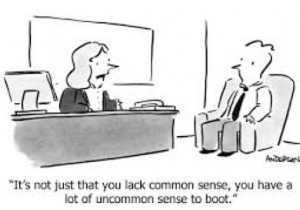Stanford University, which offers a free course for entrepreneurs suggests the fundamental difference in marketing when you are an entrepreneur:
Lumping everything that’s not a start-up into everyone else marketing is a vast over-simplification we use to make some points about entrepreneurial marketing. As someone who has been responsible for marketing in 19 different start-ups, I forget what it is like to market anything that anyone has ever heard of before. This is the most fundamental difference between entrepreneurial marketing and everyone else marketing: no one knows who you are, and secondly, you generally have very little money to tell them.
So, where do you start when you have no customers, no brand, no budget and maybe even no product? You “market” what you do have — your vision, your people and the work-in-progress that is becoming your product. This is done one-on-one or in small groups. If you are NOT out meeting with the people who may someday become your customers, and learning about their needs, their challenges and their dreams, you are making a classic mistake we call the “field of dreams” flaw — thinking, “if we build it they will come.”
Entrepreneurship is not like the movie. Customers don’t necessarily come to you; you have to go to them, and do so long before you have a product to sell. You need to understand not only their product requirements, but you need to learn how to sell it: who makes the decisions, where does the budget come from, what other issues is management facing and, most importantly, where do you fall on their priority list? We love to ask, “why would you NOT buy or use my product?” If you fail to truly understand what makes your customers tick, you will most certainly do one of three things: build too much, build the wrong thing, or deliver too late. Any of these perils can easily waste a round of funding, or, in a start-up, kill the company.
Another fundamental skill that will help you be a great entrepreneurial marketer is discovering what customers really care about. When we ask students what customers care about, usually we get responses like, “whether the product works,” or “cost effectiveness,” or “quality.” But the answer is much simpler. Customers care about themselves. They care about how you can help them be better at whatever they do. It’s about them — not about you. As soon as you realize that, you are freed from the need to have a finished and polished product. They have to believe that you 1) Comprehend their problem or opportunity, 2) have the Competence to address it and 3) Care about their success.
This is where a great entrepreneurial marketer starts: comprehending, competence and genuine caring about their customers. This customer insight goes into creating the right product. From there we can begin with the other aspects of marketing, like building awareness, generating leads, measuring success and so on. But it all starts with having the right product- one which is based on customer awareness.











